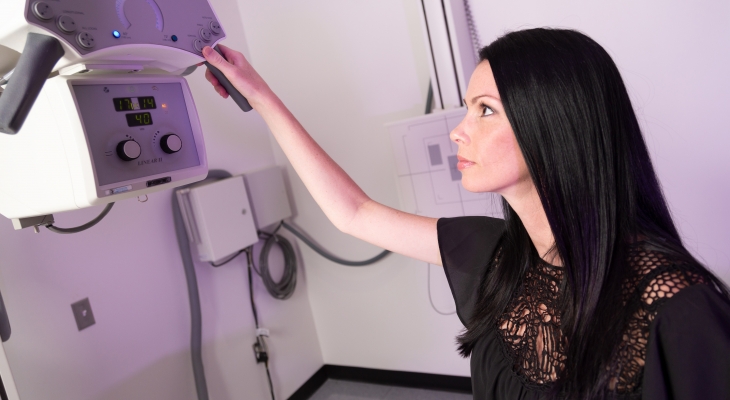
Financial Aid Application Completion Night
The Music Transfer program prepares students who wish to transfer JJC music courses to a four-year college or university to complete a bachelor's degree program.
The Joliet Junior College music unit is dedicated to producing well-trained musicians capable of succeeding in today’s diverse musical world. Whether a student’s interest is career-oriented or one of self-enrichment, there is an educational opportunity to meet his or her needs. To accomplish this we have highly experienced faculty dedicated to offering a variety of classes and ensembles to both the student working toward a career in music and the community member who is looking for musical enrichment. The music unit also presents numerous concerts and recitals each year to introduce and educate students and audiences to music of different genres, stylistic periods, and media.
New students must apply for admission to Joliet Junior College before enrolling in classes, auditioning for applied lesson, or entering a degree program.
Students enrolling in applied music courses for the first time at Joliet Junior College must audition on their major instrument to insure placement in the appropriate level of applied music.
Auditions are scheduled during Final Exam Week at the conclusion of the Spring Semester in May and during Opening Weeks in August and January. Please note that students will not be allowed to participate in Applied Music lessons without an audition at one of the three scheduled times held in the academic year.
Appointments may be scheduled by contacting the Fine Arts office at (815) 280-2223.
Students may audition on snare drum, mallets, timpani or multiple percussion.
Students in inappropriate attire will not be allowed to perform. Appropriate dress is a sign of respect for an audience, as well as for the music being performed, and contributes to a professional presentation
These requirements apply specifically to Music majors. For a detailed list of the general requirements for an AA transfer degree, view the Course Catalog.
Communications - 9 Semester Hours
Social/Behavioral Sciences - 9 Semester Hours (at least 2 areas required)
Humanities/Fine Arts
(One course required in humanities, one course required in fine arts, and one additional course from either area)
Physical/Life Sciences
(One course from physical sciences and one course from life sciences with at least one being a lab course - 7 hours)
Mathematics - 3 Semester Hours
Additional Requirements for A.A. Degree - 27 Semester Hours
Note: Course selection varies depending on the transfer institution and future major selection. Please contact a Music faculty adviser to confirm.
Four Semesters of Large Ensemble
Optional ensembles include the following:
Four semesters of Class Piano
Four semesters of Applied Instruction
In the following areas: Piano, Voice, Woodwinds, Brass, Guitar and Percussion Music.
(Two hours credit, One hour lesson)
Fundamentals of Music
Please note: Music 104 (Fundamentals of Music) is a prerequisite for entrance into Music 140 and 141. A student must pass Music 104 with a minimum grade of "B" and satisfactory achievement of competency requirements, or placement by examination.
IT IS HIGHLY RECOMMENDED YOU TAKE THIS COURSE IN THE SUMMER BEFORE YOU BEGIN THE MUSIC SEQUENCE.
Four semesters of Music Theory
Please note: Students must pass Music 140, 141, 142, 143, 240, 241, 242, and 243 with a minimum grade of "C" to continue with the next theory course.
• Nationally accredited by NASM since November 2002
• Comprehensive two-year program in all major areas
• Coursework transferable to most four-year colleges
• Low tuition fees and scholarships available
• State-of-the-art music computer keyboard lab
• Newly renovated Music Department
• Professional Recording Studio
• Renovated Fine Arts Theatre
• New Wenger VAE practice rooms
• Learning Resource Center with recordings, scores, books, and periodicals
All School of Music Faculty, Administrators, and Students should regularly review the available resources for maintaining Health and Safety standards set forth by NASM. The material below is excerpted from the NASM website. The links below will take you to the NASM site where additional resources may be found.
BASIC INFORMATION ON HEARING HEALTH
The National Association of Schools of Music (NASM) and the Performing Arts Medicine Association (PAMA) have developed a comprehensive overview of hearing health issues for postsecondary schools and departments of music. Information of a medical nature is provided by PAMA; information regarding contextual issues in music programs, by NASM.
BASIC INFORMATION ON NEUROMUSCULOSKELETAL AND VOCAL HEALTH
The National Association of Schools of Music (NASM) and the Performing Arts Medicine Association (PAMA) have developed draft material regarding neuromusculoskeletal and vocal health issues for postsecondary schools and departments of music. Information of a medical nature is provided by PAMA; information regarding contextual issues in music programs, by NASM.
Joliet Junior College is proud to announce it has partnered with Etymotic Research to be able to provide free hearing protection and education for all of our faculty and music majors.


The application for the radiologic technology program will be open from Nov. 1 through Nov. 30. The Radiologic...